What’s Happening
Nicaragua has brought a case against Germany in the International Court of Justice (ICJ) for the nations financial and material support to Israel over the course of the Israel-Gaza war, as well as Germany’s defunding of the UNRWA.
Within their case, Nicaragua has requested a series of provisional measures against Germany for their actions related to the conflict “to preserve the rights invoked herein from imminent and irreparable loss.”
In addition to the provisional measures sought by Nicaragua, they are also requesting a number of declarations by the court against Germany, which will be gone over in detail later in this article but in essence demand the court declare Germany’s complicity in Israel’s alleged genocide. The provisional measures sought will order Germany to take action to reverse and halt it’s complicity.

German Material Support
Throughout the war, Germany has provided a significant amount of financial and military support to Israel.
Following Hamas’ October 7th attack on Israel, German military exports to Israel increased exponentially. In 2022, Germany approved 32 million euros worth of military exports to Israel. This was far surpassed by the over 300 million euros that Germany approved in 2023, with the vast majority of these defence exports being approved after October 7th. In total, Germany approved 185 export permits to Israel after the Hamas attack.
German defence exports to Israel are primarily composed of air defence system components as well as communication equipment. However, Germany has also supplied a number of offensive weapons.
In January, German news company Der Spiegel claimed that Germany was sending Israel approximately 10,000 tank shells from its own stockpiles. The decision to supply the shells from Germany’s own supplies was taken given the “urgency” of the request from Israel.
In addition, Germany stated several days after the war began that they were “reviewing” an Israeli request for Germany to supply them with ammunition for warships. Germany also permitted Israel’s use of two Heron TP combat drones, which had already been within Israel for training purposes.
Thus far between January 1st and February 15th, 2024, Germany has approved an additional 9 million euros worth in defence exports to Israel.
While the majority of supplies are communications equipment and air defence system components, Germany has also supplied small arms ammunition, detonators, propellant charges, and land vehicles as well as technological assistance.
German Political Support
Germany has been one of Israel’s most fervent supporters since the beginning of the war.
“At this moment, there is only one place for Germany — the place at Israel’s side. Our own history, our responsibility arising from the Holocaust, makes it a perpetual task for us to stand up for the security of the state of Israel” -German Chancellor Olaf Scholz
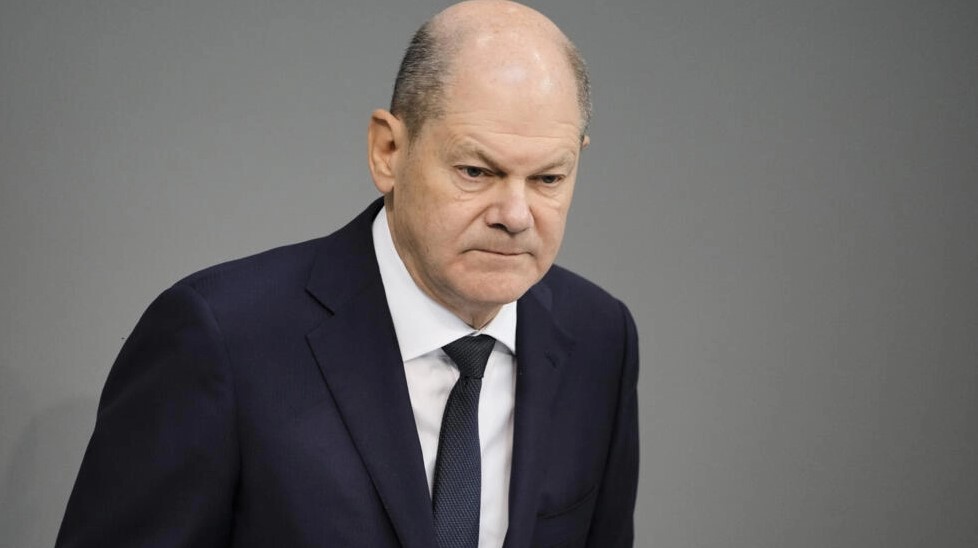
While offering a number of public declarations for support of Israel over the course of the war, support has notably been missing from one key area; the UN.
Several times the UN has voted in order to attempt to demand a ceasefire in Gaza, temporary or permanent, and every time Germany has abstained from the vote. Their abstentions have received criticism from Israel, who’s ambassador to Germany said that an abstention was “not enough”, and that Germany should be voting against these resolutions.
Although they have abstained from any resolution calling from a ceasefire, they notably have been one of the countries most vocal about including language that both condemns Hamas’ attack upon Israel, as well as demands the release of hostages held by Hamas.
Notably, Nicaragua’s case against Germany is not the only ICJ case Germany is to be involved in.
In December, South Africa filed a case in the ICJ against Israel accusing them of several breaches of the genocide convention. Similar to Nicaragua, South Africa sought a series of provisional measures against Israel, including a court order to halt the war.
The court did end up ordering several different provisional measures against Israel, but said measures fell short of an order to halt the war completely. It ordered Israel, among other things, to take action to prevent genocide, but ordered no ceasefires, temporary or permanent.
The case has garnered worldwide attention, particularly after the court declared there was the “plausibility” of South Africa’s allegations of genocide.
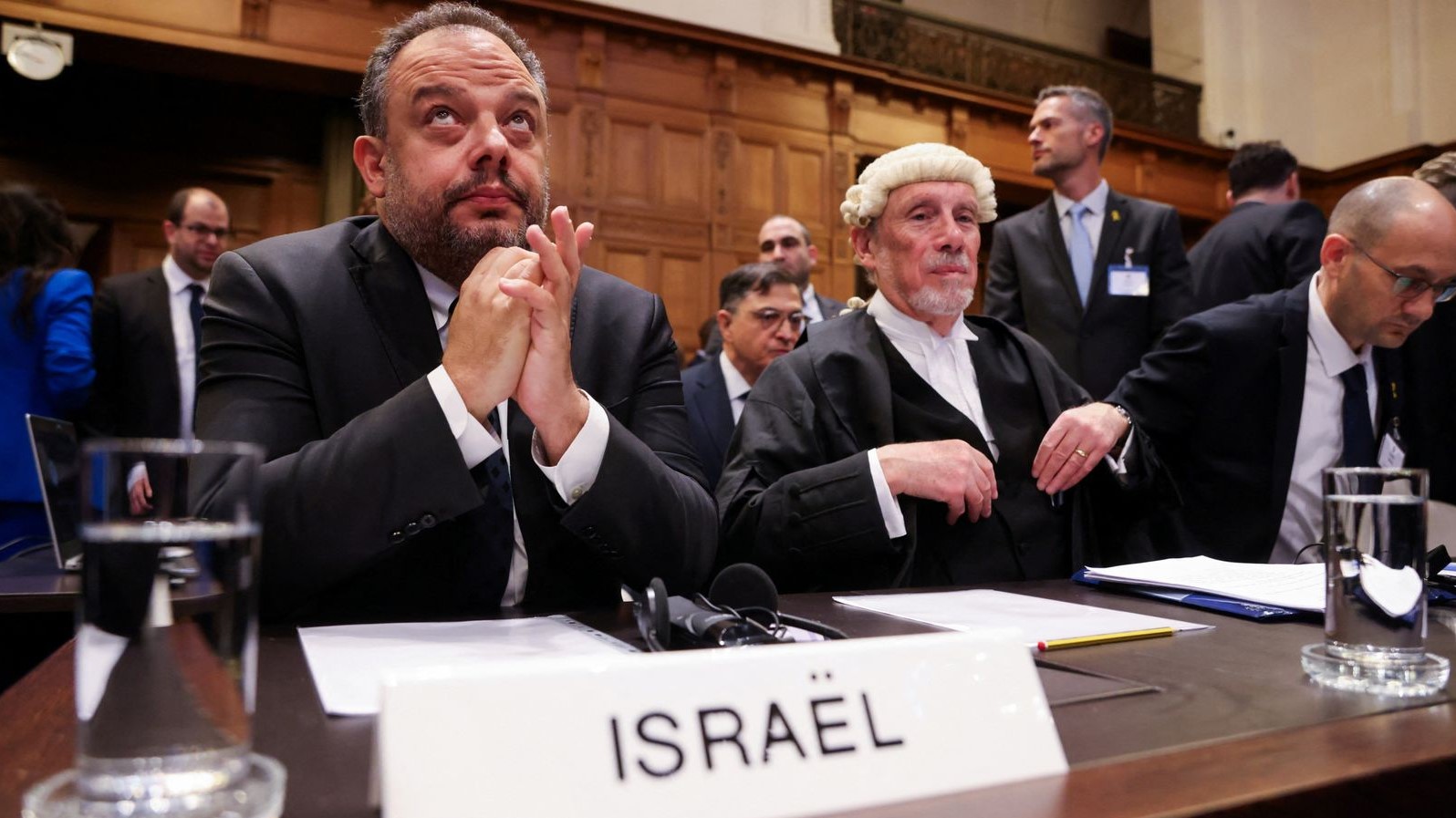
There is a long list of countries which support South Africa’s claims, and have additionally accused Israel of genocide in public, but not legal manners. In contrast, there has also been a long list of countries that have condemned the case and largely opposed it.
Among those nations that have opposed the case has of course been Israel and the US, but also Germany. Germany has pledged support to Israel in the larger case, and will send a legal team in support of Israel’s legal team to participate in the nations defence in future court sessions.
In present/previous court proceedings, the court was merely deciding upon both the plausibility of the case, as well as the provisional measures. While they have promised to send a legal team in the future, German lawyers have yet to participate in the South Africa v Israel ICJ case.
Notably, Turkey has promised support to South Africa in the case, promising to provide evidence which supports South Africa’s claims.
The UNRWA Cut
The United Nations Relief and Works Agency for Palestine Refugees in the Near East, or the UNRWA, is the primary aid organization in charge of humanitarian work within both Gaza and the west bank. Both before and after the wars beginning, the UNRWA has carried out the overwhelming majority of Gaza’s humanitarian operations.
Throughout the course of the war, the humanitarian situation within Gaza has become increasingly dire. The UNRWA has faced a number of shortages both of equipment and aid supplies. Shortages have far worsened after a number of different nations and organizations, such as the EU, completely cut funding to the UNRWA.
The reason why they cut funding to the UNRWA, who was already incredibly strained as it was, was a series of accusations Israel made against the UNRWA that accused several of their employees/volunteers of assisting in Hamas’ October 7th attack.
Israel has accused a total of 190 of the UNRWA’s over 13,000 employees of colluding with Hamas, the Palestinian Islamic Jihad, and other Palestinian militant groups. Of these, approximately 12 were said to have taken part in the October 7th attacks. The UN terminated contracts with those accused, and has announced an investigation into the allegations. The majority of the 16 nations which cut funding to the UNRWA, among them the US and Germany (the UNRWA’s two largest donors), cut their funding pending this investigation.
The investigation, however, has been complicated by Israel’s refusal to provide the UN with any of its acclaimed evidence. Israel has rejected requests to share its evidence, stating that they would simply be giving evidence to the organization which they accuse of colluding with Hamas in the first place, exposing their sourcing.
“I don’t think we need to give intelligence information. This would reveal sources in the operation. We gave information to UNRWA about employees that worked for UNRWA that are members of Hamas. They think that we can give them intelligence information, knowing that some of their employees work for Hamas? Are you serious? Why don’t we invite Hamas to our headquarters and have them sit at our desk and have a look at all the information we have?” -Israeli Foreign Ministry Spokesman Lior Haiat
Notably, the majority, if not all of the nations which cut funding to the UNRWA did so without seeing any evidence from Israel on the allegations, meaning they did so entirely based upon the existence of the allegations. Reportedly, this includes the US.
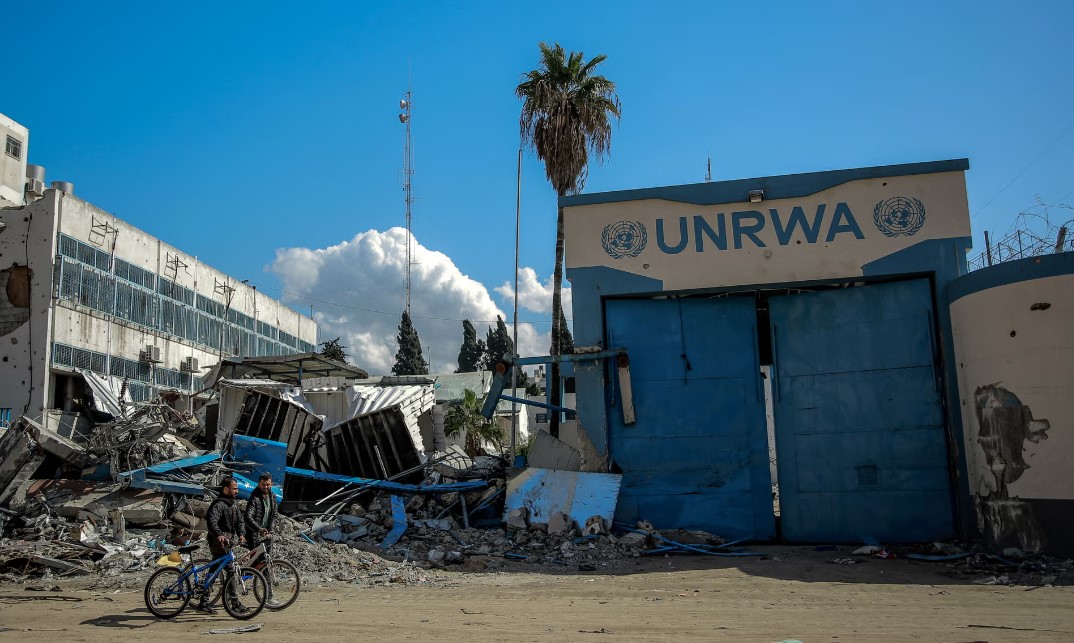
While several nations have announced their intention to resume funding to the UNRWA (such as the EU, who resumed funding several days ago), the US and Germany have not.
The cut in funding has caused a partial collapse of the UNRWA’s humanitarian operations. Recently, the UNRWA has had to halt aid deliveries to northern Gaza given both the untenable security situation there, as well as their lack of supplies to continue to do so. In addition, humanitarian supplies which entered Gaza in February were half that which entered Gaza in January.
This is despite an order by the ICJ as one of the provisional measures against Israel to facilitate and increase aid deliveries into Gaza.
On top of supply issues and security issues, an impending Israeli assault upon Rafah is threatening a complete collapse of the humanitarian situation. UN Secretary General Antonio Guterres has stated that such an assault would be “the nail in the coffin” for the humanitarian situation in Gaza.
Rafah has been the primary base for humanitarian operations, and had previously been established as a safe zone by Israel for Palestinians who had to flee Israeli bombardments in the rest of Gaza. As such, it hosts over 1 million Palestinians within the city.
Several international entities have spoken against an Israeli assault upon Rafah, including traditional Israeli allies, however Israel has spoken of the assault as an inevitability. There is the possibility of the assault being delayed by the establishment of a temporary ceasefire, for which negotiations are ongoing. Israeli Prime Minister Benjamin Netanyahu, when speaking of a potential ceasefire, has stated that an assault upon Rafah will happen after the ceasefire, if it comes to fruition.
As stated, many of the nations which cut funding to the UNRWA stated they would not resume funding until the results of the UN’s investigation into the accusations were shown. The complete investigation, as per the UN’s estimates, could take anywheres from six months to a year, however, which the UNRWA simply does not have. When funding was initially cut in late January/early February, the UNRWA estimated it would run out of funding by the end of February.
Nicaragua’s Case
Nicaragua’s full filing to the ICJ is 43 pages. The entire filing details the situation in Gaza, German support for Israel (militaristic, financial, and political), as well as what Nicaragua says are German violations of both the genocide convention as well as “its obligations, including peremptory norms.”
In addition, the case filing also establishes the existence of a dispute between Nicaragua and Germany, and also details the actions which Nicaragua took in order to declare its existence to Germany as well as inform them of Nicaragua’s views on the matter as a whole, prior to the court filing. In the eyes of the court, these are notable and necessary legal distinctions. The existence of a dispute, or lack thereof, was one of many arguments put forward by Israel in their defence against South Africa in the ICJ case against them, when they attempted to argue that the dispute was rather a “unispute.”
The entirety of Nicaragua’s official case filing may be read here.
Nicaragua’s Arguments
Concerning the ICJ case against Israel, the declared plausibility of genocide is a large part of the Nicaraguan case against Germany.
According to Nicaragua, Germany has seen the evidence of genocide, including at the hands of weapons supplied by Germany, as well as the humanitarian situation in Gaza, and has chosen to not only ignore this evidence but continue to support Israel regardless of this evidence, and has chosen to cut support to the UNRWA despite both the knowledge that Gaza is dependent upon them, but also the lack of evidence of Israel’s claims.
Nicaragua claims Germany’s suppliance of arms to Israel violates their obligations under the genocide convention. Namely they claim that Germany:
- “Has not only failed to fulfil its obligation to prevent the genocide committed and being committed against the Palestinian people – including those in its component part in the Gaza Strip – but has contributed to the commission of genocide in violation of the Genocide Convention.
- Has failed to comply with its obligations under international humanitarian law, derived both from the Geneva Conventions of 1949 and its Protocols of 1977 and from the intransgressible principles of international humanitarian law, by not respecting its obligations to ensure respect for these fundamental norms in all circumstances.
- Has failed to comply with other peremptory norms of general international law in particular by rendering aid or assistance in maintaining the illegal situation of the continued military occupation of Palestine including its ongoing, unlawful attack in Gaza
- Has failed to comply with other peremptory norms of general international law in particular by rendering aid or assistance and not preventing the illegal regime of apartheid and the negation of the right of self-determination of the Palestinian people.”
Notably, within the case filing is repeated condemnations of Hamas’ attack against Israel. One of the common gripes that Israel, the US, and other aligned nations have had with both ceasefire calls (temporary and permanent), as well as general resolutions on the situation, is claimed inadequate condemnations of the Hamas attack as well as lack of calls for the release of hostages. An October UN Security Council (UNSC) resolution aimed at creating humanitarian pauses in Gaza to allow for the entry of aid was vetoed by the US as it did not adequately underscore Israel’s right to self defence.
A December resolution calling for a ceasefire in Gaza was again vetoed by the US because it did not condemn Hamas’ attack upon Israel. More recently, in February, the US vetoed for the third time a resolution which called for a ceasefire in Gaza, claiming that it would jeopardize ongoing hostage release negotiations.
As earlier stated, Nicaragua “requests the Court to adjudge and declare that Germany:
- has breached and continues to breach its obligations under the Genocide Convention in particular the obligations provided in Article I by, with full knowledge of the situation, failing to prevent the ongoing genocide against the Palestinian People in particular Gazans;
- has breached and continues to breach its obligations under the Genocide Convention in particular the obligations provided in Article I by not only failing to prevent the ongoing genocide but by providing aid, including military equipment, to Israel that would be used in the commission of genocide, by Israel, and by withdrawing the financial assistance to the victims provided by UNRWA;
- has breached and continues to breach its obligations under Article I of the Fourth Geneva Convention and intransgressible principles of humanitarian law, not only by failing to ensure that the requirements of that Convention are complied with, but also by providing aid, including miltary equipement, that would be used in the commission of genocide, crimes against humanity, grave breaches of the Geneva Conventions of 1949, attacks directed against civilian objects or civilians protected as such, or other war crimes, in violation of its duties under 1949 Geneva Conventions and customary international law and by withdrawing Germany’s financial assistance to UNRWA;
- has breached and continues to breach its obligations under international humanitarian law not only by failing to ensure that these rules of elementary consideration of humanity are respected by Israel, but also by providing aid and assistance to Israel, and withdrawing Germany’s financial assistance to UNRWA;
- has breached and continues to breach its conventional and customary law obligations, including the obligation to facilitate and cooperate in bringing about the Palestinian people’s right to self-determination, by providing aid and particularly military equipment to Israel that is used to deny this right of self determination and moreover helps to maintain and impose an apartheid regime;
- has breached and continues to breach international law by refusing to prosecute, bring to trial and punish persons responsible for, or accused of grave crimes under international law, including war crimes and apartheid, whether or not such persons are German nationals;
- must cease immediately the breaches of its international obligations indicated above;
- must give assurances of non-repetition of the breaches of its obligations indicated above;
- must make full reparation for the injury caused its internationally wrongful acts.
Similar to South Africa, Nicaragua has said that it is fulfilling its duty as a member of the genocide convention to attempt to prevent genocide.
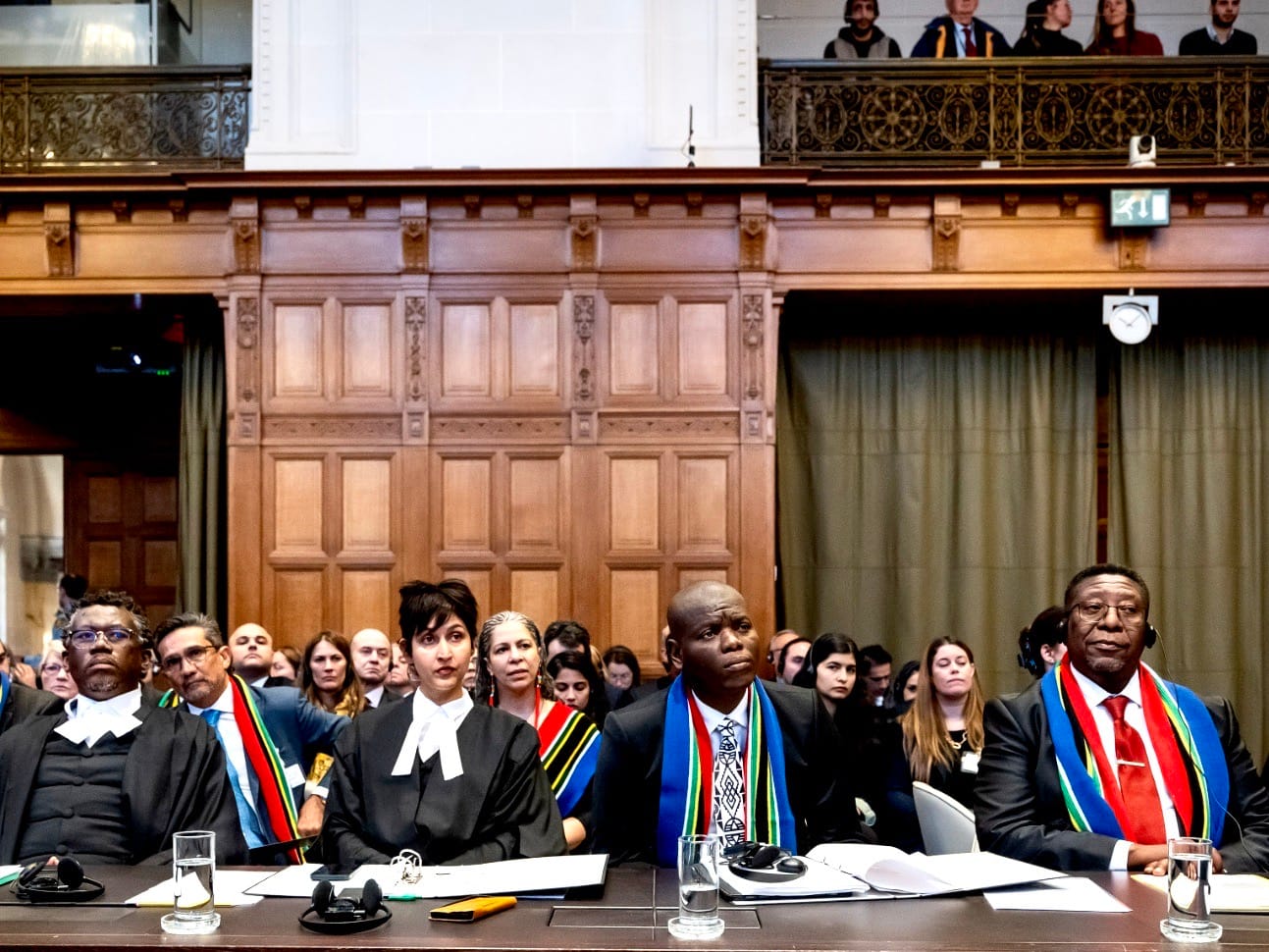
In addition to the court acknowledgements sought by Nicaragua, they are seeking a series of provisional measures to be brought against Germany.
In summary, Nicaragua is seeking a complete suspension of German aid to Israel, German efforts to ensure weapons are not used in future combat operations against Gaza, reverse its decision to defund the UNRWA, as well as comply with its obligations under international law.
The specific Provisional Measures are as follows:
- Germany shall immediately suspend its aid to Israel, in particular its military assistance including military equipment, in so far as this aid may be used in the violation of the Genocide Convention, international humanitarian law or other peremptory norms of general international law such as the Palestinian People’s right to self-determination and to not be subject to a regime of apartheid;
- Germany must immediately make every effort to ensure that weapons already delivered to Israel are not used to commit genocide, contribute to acts of genocide or are used in such a way as to violate international humanitarian law;
- Germany must immediately do everything possible to comply with its obligations under humanitarian law;
- Germany must reverse its decision to suspend the funding of UNRWA as part of the compliance of its obligations to prevent genocide and acts of genocide and the violation of the humanitarian rights of the Palestinian People which also includes the obligation to do everything possible to ensure that humanitarian aid reaches the Palestinian people, more particularly in Gaza;
- Germany must cooperate to bring to an end the serious breaches of peremptory norms of international law by ceasing its support, including its supply of military equipment to Israel that may be used to commit serious crimes of international law and that it continue the support of the UNRWA on which this Organizations has counted and based its activities.
What the Future Holds
The date of court proceedings for the Nicaragua v Germany case has yet to be established. Similar to the South Africa v Israel case, initial court hearings will witness both the Nicaraguan prosecutors as well as Germany’s defensive team, but also to establish the validity of the case.
Regarding provisional measures, the courts decision on their establishment is likely to take place a number of weeks after initial arguments take place. The entirety of the case on Germany’s alleged violations of the genocide convention could take a number of months or even years.
Notably, the German foreign ministry recently (on March 5th) released a statement in which they announced they were increasing aid to Gaza by 20 million euros. While they still have yet to resume funding to the UNRWA, there are a couple of other notable aspects to the German statement. Namely, they acknowledge that aid deliveries to Gaza have fallen significantly, and has accused Israel of hindering humanitarian access to Gaza.
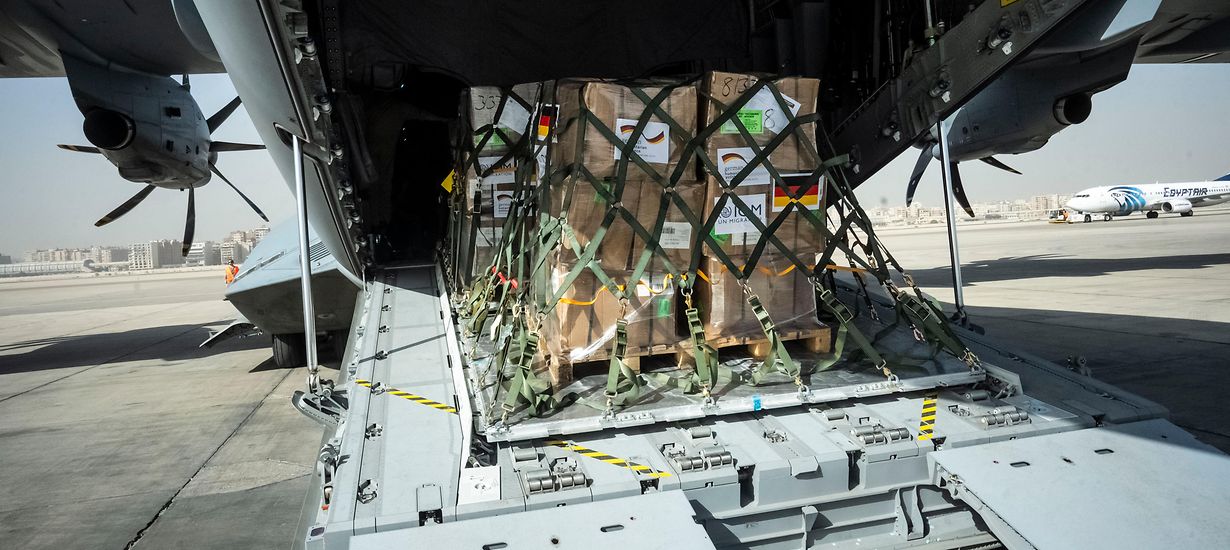
Germany has yet to officially respond to the Nicaraguan case filing.


